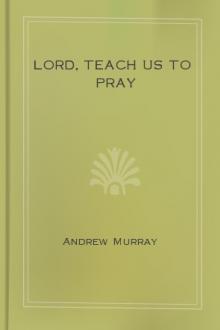St. George and St. Michael - George MacDonald (beach books .txt) 📗

- Author: George MacDonald
Book online «St. George and St. Michael - George MacDonald (beach books .txt) 📗». Author George MacDonald
a just one, my son?'
'No sir. I was in the wrong.'
'Then you are so far in the right now. And you are going to help him home?'
'Yes, sir.'
'Have you confessed yourself in the wrong?'
'Yes, sir.'
'Then go, my son, but beware of private quarrel in such a season of strife. This youth and thyself may meet some day in mortal conflict on the battle-field; and for my part-I know not how it may be with another-in such a case I would rather slay my friend than my enemy.'
Enlightened by the inward experience of the moment, Richard was able to understand and respond to the feeling. How different a sudden action flashed off the surface of a man's nature may be from that which, had time been given, would have unfolded itself from its depths!
Bare-headed, Roger Heywood walked beside his son as he led the mare to the spot where Scudamore perforce awaited his return. They found him stretched on the roadside, plucking handfuls of grass, and digging up the turf with his fingers, thus, and thus alone, betraying that he suffered. Mr. Heywood at first refrained from any offer of hospitality, believing he would be more inclined to accept it after he had proved the difficulty of riding, in which case a previous refusal might stand in the way. But although a slight groan escaped as they lifted him to the saddle, he gathered up the reins at once, and sat erect while they shortened the stirrup-leathers. Lady seemed to know what was required of her, and stood as still as a vaulting horse until Richard took the bridle to lead her away.
'I see!' said Scudamore; 'you can't trust me with your horse!'
'Not so, sir,' answered Mr. Heywood. 'We cannot trust the horse with you. It is quite impossible for you to ride so far alone. If you will go, you must submit to the attendance of my son, on which I am sorry to think you have so good a claim. But will you not yet change your mind and be our guest-for the night at least? We will send a messenger to the castle at earliest dawn.'
Scudamore declined the invitation, but with perfect courtesy, for there was that about Roger Heywood which rendered it impossible for any man who was himself a gentleman, whatever his judgment of him might be, to show him disrespect. And the moment the mare began to move, he felt no further inclination to object to Richard's company at her head, for he perceived that, should she prove in the least troublesome, it would be impossible for him to keep his seat. He did not suffer so much, however, as to lose all his good spirits, or fail in his part of a conversation composed chiefly of what we now call chaff, both of them for a time avoiding all such topics as might lead to dispute, the one from a sense of wrong already done, the other from a vague feeling that he was under the protection of the foregone injury.
'Have you known my cousin Dorothy long?' asked Scudamore.
'Longer than I can remember,' answered Richard.
'Then you must be more like brother and sister than lovers.'
'That, I fear, is her feeling,' replied Richard, honestly.
'You need not think of me as a rival,' said Scudamore. 'I never saw the young woman in my life before, and although anything of yours, being a roundhead's, is fair game-'
'Your humble servant, sir Cavalier!' interjected Richard. 'Pray use your pleasure.'
'I tell you plainly,' Scudamore went on, without heeding the interruption, 'though I admire my cousin, as I do any young woman, if she be but a shade beyond the passable-'
'The ape! The coxcomb!' said Richard to himself.
'I am not, therefore, dying for her love; and I give you this one honest warning that, though I would rather see mistress Dorothy in her winding-sheet than dame to a roundhead, I should be-yes, I MAY be a more dangerous rival in respect of your mare, than of any lady YOU are likely to set eyes upon.'
'What do you mean?' said Richard gruffly.
'I mean that, the king having at length resolved to be more of a monarch and less of a saint-'
'A saint!' echoed Richard, but the echo was rather a loud one, for it startled his mare and shook her rider.
'Don't shout like that!' cried the cavalier, with an oath. 'Saint or sinner, I care not. He is my king, and I am his soldier. But with this knee you have given me, I shall be fitter for garrison than field-duty-damn it.'
'You do not mean that his majesty has declared open war against the parliament?' exclaimed Richard.
'Faithless puritan, I do,' answered Scudamore. 'His majesty has at length-with reluctance, I am sorry to hear-taken up arms against his rebellious subjects. Land will be cheap by-and-by.'
'Many such rumours have reached us,' returned Richard, quietly. 'The king spares no threats; but for blows-well!'
'Insolent fanatic!' shouted Vaughan, 'I tell you his majesty is on his way from Scotland with an army of savages; and London has declared for the king.'
Richard and his mare simultaneously quickened their pace.
'Then it is time you were in bed, Mr Scudamore, for my mare and I will be wanted,' he cried. 'God be praised! I thank you for the good news. It makes me young again to hear it.'
'What the devil do you mean by jerking this cursed knee of mine so?' shouted Scudamore. 'Faith, you were young enough in all conscience already, you fool! You want to keep me in bed, as well as send me there! Well out of the way, you think! But I give you honest warning to look after your mare, for I vow I have fallen in love with her. She's worth three, at least, of your mistress Dorothies.'
'You talk like a Dutch boor,' said Richard.
'Saith an English lout,' retorted Scudamore. 'But, all things being lawful in love and war, not to mention hate and rebellion, this mare, if I am blessed with a chance, shall be-well, shall be translated.'
'You mean from Redware to Raglan.'
'Where she shall be entertained in a manner worthy of her, which is saying no little, if all her paces and points be equal to her walk and her crest.'
'I trust you will be more pitiful to my poor Lady,' said Richard, quietly. 'If all they say be true, Raglan stables are no place for a mare of her breeding.'
'What do you mean, roundhead?'
'Folk say your stables at Raglan are like other some Raglan matters-of the infernal sort.'
Scudamore was silent for a moment.
'Whether the stables be under the pavement or over the leads,' he returned at last, 'there are not a few in them as good as she-of which I hope to satisfy my Lady some day,' he added, patting the mare's neck.
'Wert thou not hurt already, I would pitch thee out of the saddle,' said Richard.
'Were I not hurt in the knee, thou couldst not,' said Scudamore.
'I need not lay hand upon thee. Wert thou as sound in limb as thou art in wind, thou wouldst feel thyself on the road ere thou knewest thou hadst taken leave of the saddle-did I but give the mare the sign she knows.'
'By God's grace,' said the cavalier, 'she shall be mine, and teach me the trick of it.'
Richard answered only with a grim laugh, and again, but more gently this time, quickened the mare's pace. Little more had passed between them when the six-sided towers of Raglan rose on their view.
Richard had, from childhood, been familiar with their aspect, especially that of the huge one called the Yellow Tower, but he had never yet been within the walls that encircled them. At any time during his life, almost up to the present hour, he might have entered without question, for the gates were seldom closed and never locked, the portcullises, sheathed in the wall above, hung moveless in their rusty chains, and the drawbridges spanned the moat from scarp to counterscarp, as if from the first their beams had rested there in solid masonry. And still, during the day, there was little sign of change, beyond an indefinable presence of busier life, even in the hush of the hot autumnal noon. But at night the drawbridges rose and the portcullises descended-each with its own peculiar creak, and jar, and scrape, setting the young rooks cawing in reply from every pinnacle and tree-top-never later than the last moment when the warder could see anything larger than a cat on the brow of the road this side the village. For who could tell when, or with what force at their command, the parliament might claim possession? And now another of the frequent reports had arrived, that the king had at length resorted to arms. It was altogether necessary for such as occupied a stronghold, unless willing to yield it to the first who demanded entrance, to keep watch and ward.
Admitted at the great brick gate, the outermost of all, and turning aside from the steps leading up to the white stone gate and main entrance beyond, with its drawbridge and double portcullis, Richard, by his companion's directions, led his mare to the left, and, rounding the moat of the citadel, sought the western gate of the castle, which seemed to shelter itself under the great bulk of the Yellow Tower, the cannon upon more than one of whose bastions closely commanded it, and made up for its inferiority in defence of its own.
Scudamore had scarcely called, ere the warder, who had been waked by the sound of the horse's feet, began to set the machinery of the portcullis in motion.
'What! wounded already, master Scudamore!' he cried, as they rode under the archway.
'Yes, Eccles,' answered Scudamore, '-wounded and taken prisoner, and brought home for ransom!'
As they spoke, Richard made use of his eyes, with a vague notion that some knowledge of the place might one day or other be of service, but it was little he could see. The moon was almost down, and her low light, prolific of shadows, shone straight in through the lifted portcullis, but in the gateway where they stood, there was nothing for her to show but the groined vault, the massy walls, and the huge iron-studded gate beyond.
'Curse you for a roundhead!' cried Scudamore, in the wrath engendered of a fierce twinge, as Heywood sought to help his lamed leg over the saddle.
'Dismount on this side then,' said Richard, regardless of the insult.
But the warder had caught the word.
'Roundhead!' he exclaimed.
Scudamore did not answer until he found himself safe on his feet, and by that time he had recovered his good manners.
'This is young Mr. Heywood of Redware,' he said, and moved towards the wicket, leaning on Richard's arm.
But the old warder stepped in front, and stood between them and the gate.
'Not a damned roundhead of the pack shall set foot across this door-sill, so long as I hold the gate,' he cried, with a fierce gesture of the right arm. And therewith he set his back to the wicket.
'Tut, tut, Eccles !' returned Scudamore impatiently. 'Good words are worth much, and cost little.'
'If the old dog bark, he gives counsel,' rejoined Eccles, immovable.
Heywood was amused, and stood silent, waiting the result. He had no
'No sir. I was in the wrong.'
'Then you are so far in the right now. And you are going to help him home?'
'Yes, sir.'
'Have you confessed yourself in the wrong?'
'Yes, sir.'
'Then go, my son, but beware of private quarrel in such a season of strife. This youth and thyself may meet some day in mortal conflict on the battle-field; and for my part-I know not how it may be with another-in such a case I would rather slay my friend than my enemy.'
Enlightened by the inward experience of the moment, Richard was able to understand and respond to the feeling. How different a sudden action flashed off the surface of a man's nature may be from that which, had time been given, would have unfolded itself from its depths!
Bare-headed, Roger Heywood walked beside his son as he led the mare to the spot where Scudamore perforce awaited his return. They found him stretched on the roadside, plucking handfuls of grass, and digging up the turf with his fingers, thus, and thus alone, betraying that he suffered. Mr. Heywood at first refrained from any offer of hospitality, believing he would be more inclined to accept it after he had proved the difficulty of riding, in which case a previous refusal might stand in the way. But although a slight groan escaped as they lifted him to the saddle, he gathered up the reins at once, and sat erect while they shortened the stirrup-leathers. Lady seemed to know what was required of her, and stood as still as a vaulting horse until Richard took the bridle to lead her away.
'I see!' said Scudamore; 'you can't trust me with your horse!'
'Not so, sir,' answered Mr. Heywood. 'We cannot trust the horse with you. It is quite impossible for you to ride so far alone. If you will go, you must submit to the attendance of my son, on which I am sorry to think you have so good a claim. But will you not yet change your mind and be our guest-for the night at least? We will send a messenger to the castle at earliest dawn.'
Scudamore declined the invitation, but with perfect courtesy, for there was that about Roger Heywood which rendered it impossible for any man who was himself a gentleman, whatever his judgment of him might be, to show him disrespect. And the moment the mare began to move, he felt no further inclination to object to Richard's company at her head, for he perceived that, should she prove in the least troublesome, it would be impossible for him to keep his seat. He did not suffer so much, however, as to lose all his good spirits, or fail in his part of a conversation composed chiefly of what we now call chaff, both of them for a time avoiding all such topics as might lead to dispute, the one from a sense of wrong already done, the other from a vague feeling that he was under the protection of the foregone injury.
'Have you known my cousin Dorothy long?' asked Scudamore.
'Longer than I can remember,' answered Richard.
'Then you must be more like brother and sister than lovers.'
'That, I fear, is her feeling,' replied Richard, honestly.
'You need not think of me as a rival,' said Scudamore. 'I never saw the young woman in my life before, and although anything of yours, being a roundhead's, is fair game-'
'Your humble servant, sir Cavalier!' interjected Richard. 'Pray use your pleasure.'
'I tell you plainly,' Scudamore went on, without heeding the interruption, 'though I admire my cousin, as I do any young woman, if she be but a shade beyond the passable-'
'The ape! The coxcomb!' said Richard to himself.
'I am not, therefore, dying for her love; and I give you this one honest warning that, though I would rather see mistress Dorothy in her winding-sheet than dame to a roundhead, I should be-yes, I MAY be a more dangerous rival in respect of your mare, than of any lady YOU are likely to set eyes upon.'
'What do you mean?' said Richard gruffly.
'I mean that, the king having at length resolved to be more of a monarch and less of a saint-'
'A saint!' echoed Richard, but the echo was rather a loud one, for it startled his mare and shook her rider.
'Don't shout like that!' cried the cavalier, with an oath. 'Saint or sinner, I care not. He is my king, and I am his soldier. But with this knee you have given me, I shall be fitter for garrison than field-duty-damn it.'
'You do not mean that his majesty has declared open war against the parliament?' exclaimed Richard.
'Faithless puritan, I do,' answered Scudamore. 'His majesty has at length-with reluctance, I am sorry to hear-taken up arms against his rebellious subjects. Land will be cheap by-and-by.'
'Many such rumours have reached us,' returned Richard, quietly. 'The king spares no threats; but for blows-well!'
'Insolent fanatic!' shouted Vaughan, 'I tell you his majesty is on his way from Scotland with an army of savages; and London has declared for the king.'
Richard and his mare simultaneously quickened their pace.
'Then it is time you were in bed, Mr Scudamore, for my mare and I will be wanted,' he cried. 'God be praised! I thank you for the good news. It makes me young again to hear it.'
'What the devil do you mean by jerking this cursed knee of mine so?' shouted Scudamore. 'Faith, you were young enough in all conscience already, you fool! You want to keep me in bed, as well as send me there! Well out of the way, you think! But I give you honest warning to look after your mare, for I vow I have fallen in love with her. She's worth three, at least, of your mistress Dorothies.'
'You talk like a Dutch boor,' said Richard.
'Saith an English lout,' retorted Scudamore. 'But, all things being lawful in love and war, not to mention hate and rebellion, this mare, if I am blessed with a chance, shall be-well, shall be translated.'
'You mean from Redware to Raglan.'
'Where she shall be entertained in a manner worthy of her, which is saying no little, if all her paces and points be equal to her walk and her crest.'
'I trust you will be more pitiful to my poor Lady,' said Richard, quietly. 'If all they say be true, Raglan stables are no place for a mare of her breeding.'
'What do you mean, roundhead?'
'Folk say your stables at Raglan are like other some Raglan matters-of the infernal sort.'
Scudamore was silent for a moment.
'Whether the stables be under the pavement or over the leads,' he returned at last, 'there are not a few in them as good as she-of which I hope to satisfy my Lady some day,' he added, patting the mare's neck.
'Wert thou not hurt already, I would pitch thee out of the saddle,' said Richard.
'Were I not hurt in the knee, thou couldst not,' said Scudamore.
'I need not lay hand upon thee. Wert thou as sound in limb as thou art in wind, thou wouldst feel thyself on the road ere thou knewest thou hadst taken leave of the saddle-did I but give the mare the sign she knows.'
'By God's grace,' said the cavalier, 'she shall be mine, and teach me the trick of it.'
Richard answered only with a grim laugh, and again, but more gently this time, quickened the mare's pace. Little more had passed between them when the six-sided towers of Raglan rose on their view.
Richard had, from childhood, been familiar with their aspect, especially that of the huge one called the Yellow Tower, but he had never yet been within the walls that encircled them. At any time during his life, almost up to the present hour, he might have entered without question, for the gates were seldom closed and never locked, the portcullises, sheathed in the wall above, hung moveless in their rusty chains, and the drawbridges spanned the moat from scarp to counterscarp, as if from the first their beams had rested there in solid masonry. And still, during the day, there was little sign of change, beyond an indefinable presence of busier life, even in the hush of the hot autumnal noon. But at night the drawbridges rose and the portcullises descended-each with its own peculiar creak, and jar, and scrape, setting the young rooks cawing in reply from every pinnacle and tree-top-never later than the last moment when the warder could see anything larger than a cat on the brow of the road this side the village. For who could tell when, or with what force at their command, the parliament might claim possession? And now another of the frequent reports had arrived, that the king had at length resorted to arms. It was altogether necessary for such as occupied a stronghold, unless willing to yield it to the first who demanded entrance, to keep watch and ward.
Admitted at the great brick gate, the outermost of all, and turning aside from the steps leading up to the white stone gate and main entrance beyond, with its drawbridge and double portcullis, Richard, by his companion's directions, led his mare to the left, and, rounding the moat of the citadel, sought the western gate of the castle, which seemed to shelter itself under the great bulk of the Yellow Tower, the cannon upon more than one of whose bastions closely commanded it, and made up for its inferiority in defence of its own.
Scudamore had scarcely called, ere the warder, who had been waked by the sound of the horse's feet, began to set the machinery of the portcullis in motion.
'What! wounded already, master Scudamore!' he cried, as they rode under the archway.
'Yes, Eccles,' answered Scudamore, '-wounded and taken prisoner, and brought home for ransom!'
As they spoke, Richard made use of his eyes, with a vague notion that some knowledge of the place might one day or other be of service, but it was little he could see. The moon was almost down, and her low light, prolific of shadows, shone straight in through the lifted portcullis, but in the gateway where they stood, there was nothing for her to show but the groined vault, the massy walls, and the huge iron-studded gate beyond.
'Curse you for a roundhead!' cried Scudamore, in the wrath engendered of a fierce twinge, as Heywood sought to help his lamed leg over the saddle.
'Dismount on this side then,' said Richard, regardless of the insult.
But the warder had caught the word.
'Roundhead!' he exclaimed.
Scudamore did not answer until he found himself safe on his feet, and by that time he had recovered his good manners.
'This is young Mr. Heywood of Redware,' he said, and moved towards the wicket, leaning on Richard's arm.
But the old warder stepped in front, and stood between them and the gate.
'Not a damned roundhead of the pack shall set foot across this door-sill, so long as I hold the gate,' he cried, with a fierce gesture of the right arm. And therewith he set his back to the wicket.
'Tut, tut, Eccles !' returned Scudamore impatiently. 'Good words are worth much, and cost little.'
'If the old dog bark, he gives counsel,' rejoined Eccles, immovable.
Heywood was amused, and stood silent, waiting the result. He had no
Free e-book «St. George and St. Michael - George MacDonald (beach books .txt) 📗» - read online now
Similar e-books:





Comments (0)